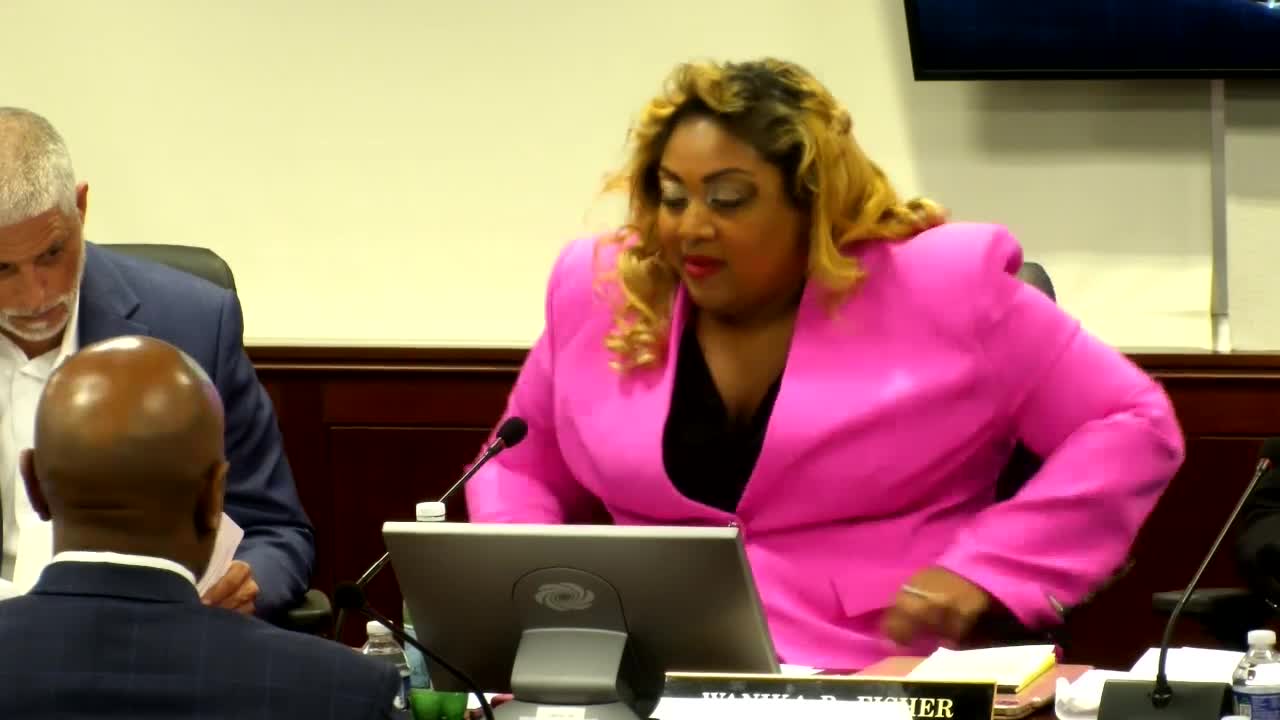Prince George's County delegation briefs council on 2025 session: budget, tax changes and local hospital funding
Get AI-powered insights, summaries, and transcripts
Subscribe
Summary
Delegate Nicole Williams and Senator Ron Watson told the Prince George’s County Council General Assembly Committee on April 22 that the 2025 Maryland legislative session produced a balanced state budget after multibillion-dollar shortfalls and approved measures affecting public safety, transportation and local health care funding.
Delegate Nicole Williams, chair of the Prince George’s County House delegation, and Senator Ron Watson, vice chair of the county’s Senate delegation, briefed the Prince George’s County Council General Assembly Committee on Tuesday, April 22, on legislation and budget actions from the 2025 Maryland General Assembly session that directly affect the county.
The briefing covered this year’s balanced state budget, new and revised taxes and fees, targeted local capital funding for county hospitals and several laws the delegation cited as intended to address public safety and housing fraud.
The delegation said the General Assembly began the session facing an estimated $2.6 billion shortfall that grew to “a little over $3,000,000,000” as revenue estimates changed during the year. “I am pleased to report that we were able to pass a balanced budget,” Delegate Nicole Williams said. She added the final package included what she described as roughly $113 million in surplus and that the state placed about $2,100,000,000 into the rainy-day fund.
Senator Ron Watson described the session as “the toughest legislative session I’ve been in” and said federal-level changes reduced Maryland’s revenue expectations, including an estimated near-$350 million reduction in personnel corporate sales tax revenue over two years tied to federal decisions. Watson said the legislature may need a special session in September to revisit the state budget once federal actions’ full impacts are clear.
Major fiscal and revenue items the delegation cited from the enacted budget and related legislation include: - A new 3% tax on certain digital products and services, described by the delegation as a revenue source to help close the gap. - An increase in the cannabis excise tax from 9% to 12%. - Higher vehicle-title fees for new and used cars (delegation cited an increase from $100 to $200) and a $5 surcharge per new tire purchase, plus other fees to shore up transportation funding. - Across-the-board spending cuts the delegation described as totaling approximately $2,100,000,000.
The delegation said lawmakers secured several direct investments for the county: $20,000,000 for an obstetrics tower at Doctors Community Hospital, $10,000,000 for MedStar Southern Regional Medical Center and $5,000,000 for Adventist Fort Washington Medical Center. Delegate Williams also said Prince George’s County was one of five jurisdictions in the state to receive an increased disparity grant allocation.
On transportation safety, Williams described a bill to increase speed-camera penalties along Route 210, saying the statute will make penalties “commensurate to the speed in which the offender is driving” and that it builds on the governor’s prior work on speed cameras and work-zone enforcement. The delegation also noted state attention to a proposed Maglev project that some leaders and unions support for jobs but cautioned about potential community disruption.
Education remained a major priority. Delegate Williams said she served as floor leader for the state’s Blueprint education investment, which the delegation described as a roughly $3,000,000,000 investment and “the biggest investment in a generation” for schools. She said the House fought to maintain the program’s funding intact and that the measure includes a provision allowing counties to exceed certain charter caps only if funds are used for education purposes.
The delegation discussed other enacted or pending state measures they said will affect county operations and residents, including a federal employee assistance loan fund for workers laid off on or after Jan. 25, 2025, and an organized retail theft statute that raises aggregated theft amounts across participants to felony-level liability when the total exceeds $1,500, the delegation said.
The briefing closed with the delegation urging ongoing partnership between state lawmakers and the County Council on land-use, economic development and implementation of enacted policies. “We want to be partners,” Senator Watson said, adding the delegation expects to coordinate with the incoming County Executive and the council’s new leadership.
Local council members asked for follow-up briefings and documentation on budget items, state agency testimony and the delegation’s lobbyist list to inform interim planning ahead of the 2026 session.
Ending: The council’s General Assembly Committee scheduled interim coordination with the delegation and asked staff to circulate agency presentations and recordings referenced during the briefing.
